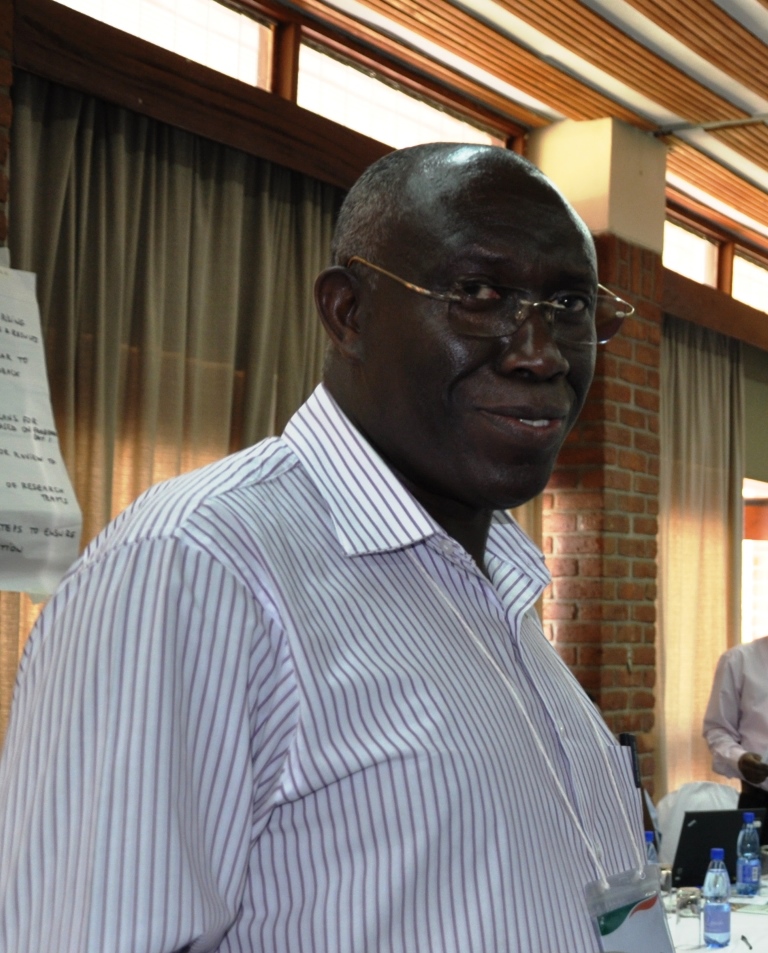RISING voices: Mateete Bekunda, chief scientist East and Southern Africa (ESA) project

Mateete Bekunda was born in Kyabashenyi village in Southwestern Uganda. He has a BSc in agriculture and an MSc and a PhD in soil science specializing in soil phosphorus.
Before joining Africa RISING he was a university-based researcher at Makerere University. During this time, he expanded his research interests to agricultural science, particularly on the improvement of low-input smallholder farming, notably efficient nutrient management and agronomy. He says this was gratifying for him as he got the opportunity to work and share knowledge with students (human capacity development).
Bekunda is chief scientist in the East and Southern Africa (ESA) project of the Africa RISING Program and a farming systems agronomist with the International Institute of Tropical Agriculture (IITA). He joined the program in 2012 as a consultant and full-time in October 2012.
In his capacity as the chief scientist, his main task is to oversee the implementation of research activities conducted by the multidisciplinary teams, as outlined in the Africa RISING Program Framework. He works with action site research teams to develop quality research proposals, work plans and budgets, offer technical backstopping and monitor implementation of the research and to oversee timeliness of deliverables. He also offers technical and other advice to the program coordinator and the ESA project steering committee.
What do you think is unique about Africa RISING? Africa RISING has enabled the actualization of multi-disciplinary and stakeholder action theory to practice. It has been and still is a learning experience for us.
What are the goals you most want to accomplish in your work? To have positive changes in the lives of the smallholder farmers through actions of successful research teams and platforms.
What do you think is the most challenging part of working in Africa RISING? Having adequate resources (financial and human) to address activities of, in most cases, ambitious research teams. We all dream big and get stopped in our tracks by these limitations.
And how do you think you contribute to address these challenges? I am part of the working teams that have enabled synergistic partnerships to happen between Africa RISING and other projects which have some extra resources, and we have also started developing concept notes aimed at generating supplementary resources for Africa RISING.
What are the lessons you have learned so far? One lesson that summarizes all: Yes, we can!
Any interesting story from your work in Africa RISING that you would like to share with us? Human capacity building is rubbing in. I keep encouraging my colleagues to recruit students into our research activities and I keep challenging those working with us but have not attained higher degrees to make use of the array of scientists from the different institutions brought together by Africa RISING. It is working. We already have two BAs, 13 MSc and six PhD students under ESA scientists’ mentorship now with other applicants in the pipeline. These are an assured Africa RISING legacy.




